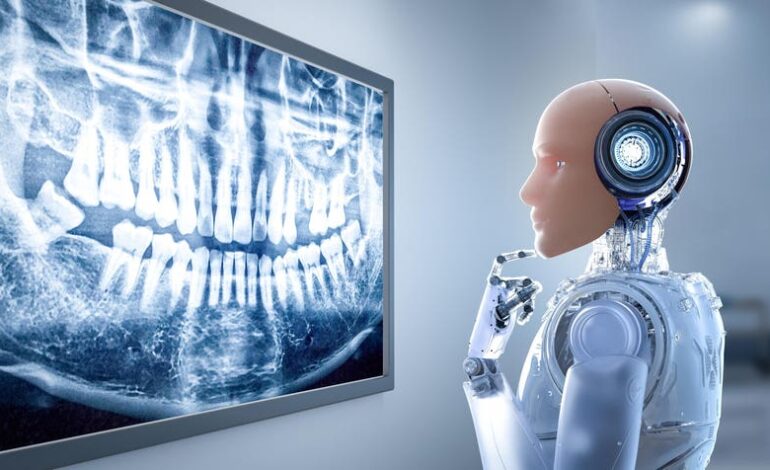AI Revolutionizes Oral Health: New Insights for Longevity

Recent advancements in artificial intelligence (AI) are transforming the field of oral health, leading to improved patient outcomes and a more modern approach to dental care. AI technologies are now being integrated into dental practices worldwide, allowing professionals to diagnose and treat conditions like caries and periodontal disease more effectively than ever before.
According to a study published in the National Library of Medicine, AI offers innovative tools that optimize diagnosis, treatment planning, and patient management. Techniques such as machine learning and computer vision enable dental professionals to analyze clinical images, identify pathological conditions, and predict disease progression. This early detection of issues such as caries and oral cancer has the potential to significantly enhance patient care.
In a recent article in the Journal of the American Dental Association, J. Tim Wright, DDS, highlighted the historical context of AI in healthcare. He noted that since the term “artificial intelligence” was coined in 1956 by John McCarthy, the technology has evolved to become a critical component in various sectors, including dentistry. Wright emphasized that tools such as voice-recognition software for electronic charting are changing the landscape of patient-centered care.
The connection between oral health and overall well-being was a focal point in two recent talks associated with the wearable technology company WHOOP. Speakers Mariya Filipova and Stephen Thorne shared personal experiences that underscored the importance of oral health in relation to broader health outcomes. Filipova, who faced a challenging battle with cancer, described how her experience led to a collaborative approach among various medical specialists. This convergence of expertise resulted in a successful surgery that highlighted the importance of breaking down silos in healthcare.
Filipova pointed out that research has shown oral health is fundamentally relevant to longevity. She stated, “Slowly, we’re starting to connect the dots between adverse outcomes and oral health interventions.” She encouraged individuals to engage in conversations with their healthcare providers about their oral health, noting that conditions such as diabetes and heart disease are often linked to dental issues.
Thorne echoed these sentiments, explaining that saliva can provide critical insights into one’s overall health. “Our mouths are a gateway to many chronic inflammatory diseases,” he said. He emphasized that chronic inflammation, which can often originate in the mouth, is a significant health concern. “The reality is today, we cannot be healthy without good oral health, and your dentist can literally change your life,” Thorne concluded.
As AI continues to evolve, its impact on healthcare will likely expand. Many experts believe that the current standard of care may soon seem outdated, as AI-driven insights become integral to patient treatment. This shift could lead to a new era in which oral health is recognized as vital to overall health and longevity.
The implications of these advancements compel individuals to stay informed and adapt to rapidly changing technologies in healthcare. While immediate action may not be necessary, understanding the connection between oral health and overall well-being is essential for improving life expectancy and quality of life. As AI reshapes the dental landscape, patients are encouraged to engage in proactive discussions with their dental and medical providers, paving the way for a healthier future.






